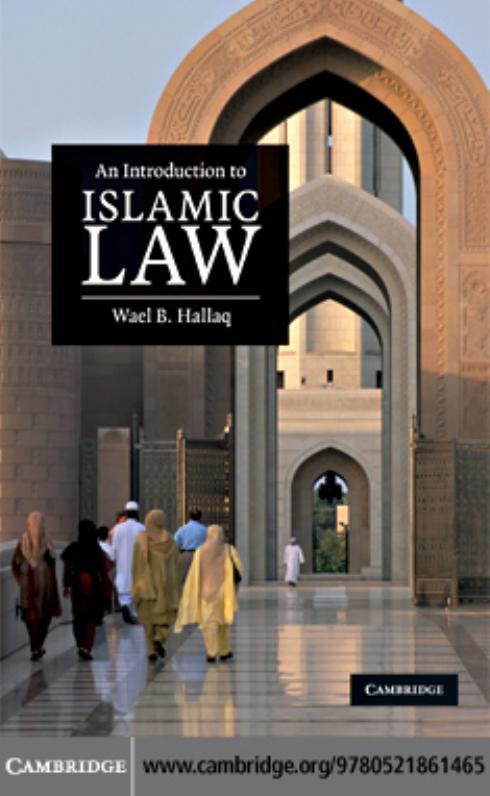An Introduction to Islamic Law by Wael B. Hallaq

Author:Wael B. Hallaq [Hallaq, Wael B.]
Language: eng
Format: epub, pdf
ISBN: 9780511725371
Publisher: Cambridge University Press
Published: 2010-04-01T04:00:00+00:00
Egypt’s drive for modernization
The intertwined and complex relationships between the Ottoman Empire and its autonomous Egyptian province perhaps explain the general similarities in their checkered legal careers as indirect colonies of the European powers (Egypt, in any case, for most of the nineteenth century). The most serious challenge for Muhammad Ali, Egypt’s powerful governor, was to solve the riddle of European military and naval supremacy. Although the Napoleonic “expedition” of 1798 had failed, the threat of European domination was vigorously renewed, especially by Britain. A way out of falling prey to such conquests was to modernize, which meant for Muhammad Ali building a strong army and navy for defense, and a merchant marine for exports that were to be produced by local agriculture and industry.
One of the first projects he undertook was the physical elimination of the Mamluk elite in 1811, as well as the systematic dismantling of the old tax-farming tradition. An integral part of his agricultural reform was to confiscate land that was frequently, if not mostly, under the regime of waqf (although the policy of land confiscation was to be partly reversed later). Thus, long before Istanbul decided to commandeer the waqfs, Muhammad Ali had already done so, promising waqf dependants an income via the agency of the state. Several other administrative reforms were carried out, but these appear to have had neither a clear direction nor a unified sense of purpose. A Supreme Council, headed by Chief Justices from the four legal schools, was established in order to deal with, among many other matters, mercantile disputes involving foreigners. This Council appears to have been instituted with the dual purpose of: (a) accommodating extrajudicial commercial litigation arising from the extensive economic hegemony that the Europeans exercised in Egypt; and (b) inserting centralizing elements into the judiciary. Very little else changed on the level of the lower courts, however.
Although Muhammad Ali acted as the de facto ruler of Egypt, he remained during the 1830s bound by the spirit, if not the letter, of Istanbul’s reformist agenda, represented in the latter’s policies leading up to the 1839 Decree. Such demands, however, were not difficult to oblige, as interest in modernization was equally intense in Egypt. But local considerations gave it a particular form and process. In 1836 or thereabouts, French experts, at the invitation of Muhammad Ali, submitted to him a report with a number of recommendations pertaining to improvements in the military and economic spheres. The crux of the recommendations was the forging of a centralized administration, which could regulate nearly every aspect of life in Egypt, from the army and guilds, to public traffic and water supply. These regulations, permeating spheres of life that had never before been subjected to such high-level scrutiny, became the hallmark of Muhammad Ali’s regime as much as it became that of the Ottomans and every other modernizing regime.
Following the French experts’ recommendations, Muhammad Ali issued in 1837 the so-called siyasatname, a reform plan that, much like the new administrative and judicial
Download
An Introduction to Islamic Law by Wael B. Hallaq.pdf
This site does not store any files on its server. We only index and link to content provided by other sites. Please contact the content providers to delete copyright contents if any and email us, we'll remove relevant links or contents immediately.
The Pirates of Somalia by Jay Bahadur(1642)
Political Theology by Carl Schmitt(1588)
The Holocaust: A New History by Laurence Rees(1531)
The Social Animal by David Brooks(1462)
A Practical Guide to International Arbitration in London by Hilary Heilbron(1441)
Restitution by Restitution(1429)
Pirates of Somalia by Jay Bahadur(1388)
Coercing Virtue by Robert H. Bork(1364)
The Nuremberg Interviews by Leon Goldensohn(1310)
Basic International Corporate Taxation by Sebastiano Garufi(1222)
A History Of Thailand by Baker Chris(1198)
International Trade and Business: Law, Policy and Ethics by Gabriël Moens & Peter Gillies(1154)
The Global Commons by Susan J. Buck(1142)
Blood Profits by Vanessa Neumann(1125)
Asian Waters by Humphrey Hawksley(1119)
The Sovereignty of Human Rights by Macklem Patrick(1116)
Spring Fever: The Illusion of Islamic Democracy by McCarthy Andrew C(1110)
The Nuremberg Trials: The Nazis and their Crimes Against Humanity by Roland Paul(1055)
Crimes Against Humanity: Historical Evolution and Contemporary Application by M. Cherif Bassiouni(1031)
